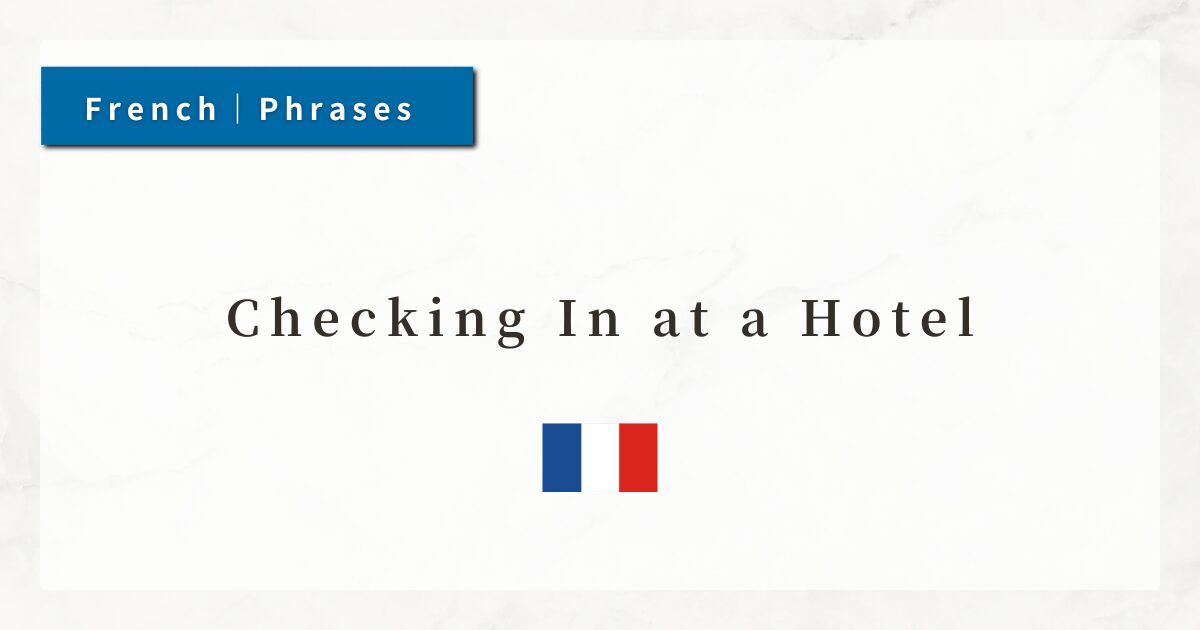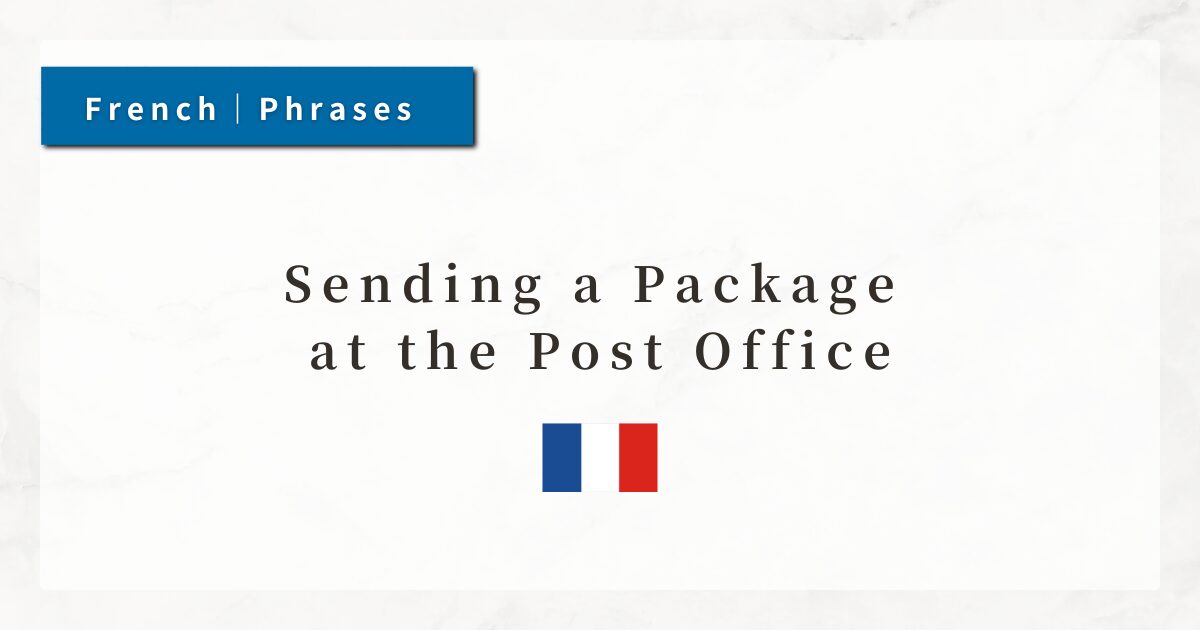#30 Checking In at a Hotel|Useful Phrases for Confirming Reservations

When you arrive at your hotel during a trip, the first step is the check-in procedure.
If you can state your name, confirm your reservation, and ask basic questions in French, the process will go smoothly and you will be guided to your room without difficulty.
Here, I will introduce useful French phrases for the hotel front desk along with important grammar points.
Dialogue

Bonjour, j’ai une réservation au nom de Tanaka.
(Hello, I have a reservation under the name Tanaka.)

Très bien, pouvez-vous me montrer votre passeport, s’il vous plaît ?
(Very well, may I see your passport, please?)

Bien sûr. Le petit-déjeuner est-il inclus ?
(Of course. Is breakfast included?)

Oui, il est inclus. Votre chambre est au troisième étage. Voici la clé.
(Yes, it is included. Your room is on the third floor. Here is the key.)

Merci beaucoup. À quelle heure faut-il libérer la chambre demain ?
(Thank you very much. What time is check-out tomorrow?)

Midi, s’il vous plaît.
(By noon, please.)
1. Stating a Reservation
At check-in, the first step is to say that you have a reservation.
- J’ai une réservation au nom de Tanaka.
(I have a reservation under the name Tanaka.)
Since réservation (reservation) is a feminine noun, it takes une réservation.
The phrase “au nom de …” means “under the name of …” and is essential when confirming a reservation.
- J’ai une réservation au nom de Suzuki.
(I have a reservation under the name Suzuki.) - J’ai réservé une chambre pour deux nuits.
(I booked a room for two nights.)
2. When Asked for Identification
At the front desk, you will often be asked to present your passport.
- Pouvez-vous me montrer votre passeport, s’il vous plaît ?
(Could you show me your passport, please?)
The structure “Pouvez-vous … ?” is a polite way to say “Could you …?” Adding “s’il vous plaît” at the end makes it even softer and more courteous.
- Pouvez-vous me donner votre adresse ?
(Could you give me your address?) - Pouvez-vous remplir ce formulaire ?
(Could you fill out this form?)
3. Confirming Services
During your stay, you may want to confirm whether certain services are included, such as breakfast or Wi-Fi.
- Le petit-déjeuner est-il inclus ?
(Is breakfast included?)
Here, “inclus” means “included.” The phrase uses “est-il …?,” an inverted word order for Yes/No questions. This is a standard and formal way to ask questions.
- Le Wi-Fi est-il gratuit ?
(Is the Wi-Fi free?) - Le parking est-il inclus ?
(Is parking included?)
4. Asking About Check-Out Time
It is also important to confirm the check-out time for the next day.
- À quelle heure faut-il libérer la chambre ?
(At what time must the room be vacated? / What time is check-out?)
The phrase faut-il comes from the verb falloir (to be necessary), which expresses obligation.
The expression “libérer la chambre” literally means “to free the room,” but in this context it means “to check out.”
Summary
- J’ai une réservation au nom de ….
→ “I have a reservation under the name of …” - Pouvez-vous me montrer … ?
→ “Could you show me …?” (polite request) - … est inclus
→ “is included” — useful when confirming services - À quelle heure faut-il libérer la chambre ?
→ “What time is check-out?”




